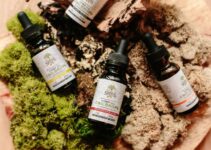I've always wondered which is better for inflammation: CBD isolates or whole plant extracts? In this article, I'll explore the differences between the two and their impact on inflammation. We'll delve into the efficacy of CBD isolates and the potential benefits of full-spectrum CBD. By the end, you'll have a better understanding of which type of CBD product may be more suitable for managing inflammation.
Key Takeaways
- CBD isolates are 99% pure CBD and provide targeted relief from inflammation.
- Full-spectrum CBD, derived from the whole hemp plant, contains a variety of cannabinoids and terpenes which enhance the overall anti-inflammatory potential.
- Research suggests that the combination of cannabinoids and terpenes in full-spectrum CBD may have a greater impact on reducing inflammation compared to isolated CBD.
- When choosing CBD products, opt for full-spectrum or broad-spectrum CBD to benefit from the entourage effect and prioritize products that have undergone third-party testing for transparency and quality.
Understanding CBD Isolates
I prefer CBD isolates when I need a pure and concentrated form of CBD for targeted relief from inflammation. Understanding purity is crucial when it comes to CBD isolates. These isolates are 99% pure CBD, ensuring that I get the exact compound I need without any other cannabinoids or compounds present. This purity gives me confidence in knowing exactly what I'm consuming. Extraction methods play a significant role in ensuring this purity. Processes like CO2 extraction and winterization are commonly used to isolate CBD from the hemp plant, resulting in a highly pure product. These methods effectively remove any impurities, leaving behind only the CBD compound. This level of purity is essential for me when seeking targeted relief from inflammation, making CBD isolates my go-to choice.
Exploring Full-Spectrum CBD Benefits
When exploring full-spectrum CBD benefits, the entourage effect of multiple cannabinoids and terpenes working together can enhance the overall anti-inflammatory potential, complementing the targeted relief provided by isolates. The synergistic interaction between CBD and other compounds in the full-spectrum extract can potentially amplify the anti-inflammatory properties, offering a more comprehensive approach to managing inflammation. Research suggests that the combination of cannabinoids and terpenes may have a more significant impact on reducing inflammation compared to isolated CBD. This cannabinoid synergy within full-spectrum CBD products may provide a broader range of therapeutic effects, potentially leading to improved overall well-being. Understanding the entourage effect and its role in modulating inflammation is crucial in harnessing the full potential of CBD for holistic relief.
Efficacy of CBD Isolates for Inflammation
One study suggests that using high-potency CBD isolates may offer targeted relief for inflammation. CBD isolate benefits for inflammation relief include:
- Precision: CBD isolates provide a pure form of CBD, devoid of other compounds, which allows for precise dosing and targeted relief for inflammation.
- THC-Free: CBD isolates contain zero THC, making them a preferred choice for individuals sensitive to THC or those who undergo routine drug tests.
- Versatility: CBD isolates can be easily incorporated into various products such as oils, edibles, and topicals, offering a versatile option for addressing inflammation in different ways.
CBD isolates, with their focused benefits, offer a promising option for those seeking targeted relief from inflammation without the presence of other cannabinoids or compounds.
Impact of Full-Spectrum CBD on Inflammation
Transitioning from the discussion of CBD isolates, full-spectrum CBD's impact on inflammation is a topic of growing interest. Full-spectrum CBD, derived from the whole hemp plant, contains a variety of cannabinoids, terpenes, and other beneficial compounds that work together to produce what is known as the "entourage effect." This effect suggests that the various components of the plant may have a synergistic relationship, enhancing the overall therapeutic effects, including inflammation management.
| Cannabinoid | Therapeutic Effect |
|---|---|
| CBD | Anti-inflammatory |
| THC | Analgesic |
| CBG | Neuroprotective |
| CBC | Anti-acne |
| CBN | Antibacterial |
The interaction of these cannabinoids and terpenes has the potential to offer a more comprehensive approach to managing inflammation and its associated symptoms. Further research into these cannabinoid synergies could provide valuable insights into leveraging the full potential of CBD for inflammation management.
Considerations for Choosing CBD Products
Considering the entourage effect of full-spectrum CBD, I prioritize products that offer a diverse range of cannabinoids and terpenes for comprehensive inflammation management. When making CBD product selections, it's crucial to consider the following:
- Full-Spectrum or Broad-Spectrum: Opt for full-spectrum or broad-spectrum CBD products to benefit from the entourage effect, which enhances the therapeutic effects through the synergistic interaction of multiple cannabinoids and terpenes.
- Source and Extraction Method: Choose products derived from organically grown hemp and extracted using clean, solvent-free methods to ensure purity and potency, minimizing the risk of harmful contaminants.
- Third-Party Testing: Prioritize products that have undergone third-party testing, ensuring transparency, quality, and accurate labeling, which is essential for understanding the product's composition and making informed decisions about its health implications.
Frequently Asked Questions
How Do CBD Isolates and Full-Spectrum CBD Products Differ in Terms of Their Impact on Specific Types of Inflammation, Such as Arthritis or Digestive Issues?
In managing inflammation, CBD isolates and full-spectrum CBD differ in their impact on specific conditions like arthritis or digestive issues. When comparing isolates to full spectrum, the former is purer, containing only CBD, while the latter includes other cannabinoids and compounds. For localized inflammation like arthritis, isolates may be more effective when topically applied. However, for digestive issues, the entourage effect of full-spectrum CBD could offer broader benefits.
Are There Any Potential Interactions Between CBD Isolates or Full-Spectrum CBD and Commonly Prescribed Anti-Inflammatory Medications?
Potential risks and drug interactions between CBD and medication are important to consider, especially when addressing the inflammatory response. It's crucial to consult a healthcare professional when using CBD isolates or full-spectrum CBD alongside prescribed anti-inflammatory medications. Some medications may interact with CBD, affecting their effectiveness or causing adverse effects. Understanding these potential interactions can help manage inflammation more safely and effectively.
Can CBD Isolates or Full-Spectrum CBD Products Be Used Topically to Target Localized Inflammation, and if So, Which Is More Effective?
I find that using CBD isolates or full-spectrum CBD topically can effectively target localized inflammation. Both isolates and full-spectrum products offer targeted relief through skin absorption, aiding in inflammation management. However, based on personal experience, I've found that full-spectrum CBD products may be more effective due to the entourage effect. This effect combines various cannabinoids and terpenes for enhanced benefits, making full-spectrum products a promising choice for localized inflammation.
Are There Any Specific Conditions or Health Concerns That May Make One Type of CBD Product More Suitable for Managing Inflammation Than the Other?
When it comes to managing inflammation, medical conditions and CBD preference play a key role. Different health concerns may influence whether isolates or whole plant extracts are more suitable. It's important to consider individual needs and consult a healthcare professional. Isolates may be preferred for those concerned about THC, while whole plant extracts can offer a wider range of cannabinoids, potentially providing enhanced anti-inflammatory effects.
What Are the Environmental and Ethical Considerations Associated With the Production of CBD Isolates Versus Full-Spectrum CBD Products, and How Might These Factors Impact Their Overall Effectiveness in Managing Inflammation?
Environmental impact and ethical considerations play a significant role in CBD production. The extraction process for isolates often involves harsh chemicals, which can have a negative environmental impact. On the other hand, whole plant extracts may have a lower carbon footprint and use more sustainable practices. Ethically, supporting sustainable and eco-friendly CBD production aligns with my values and can contribute to a healthier planet.
Conclusion
In conclusion, when it comes to inflammation, both CBD isolates and full-spectrum extracts have their benefits. While isolates may provide targeted relief, full-spectrum extracts offer a wider range of potential therapeutic effects. Ultimately, the choice between isolates and whole plant extracts will depend on individual needs and preferences. It's important to consult with a healthcare professional and consider factors such as dosage, bioavailability, and potential drug interactions when selecting CBD products for inflammation.




